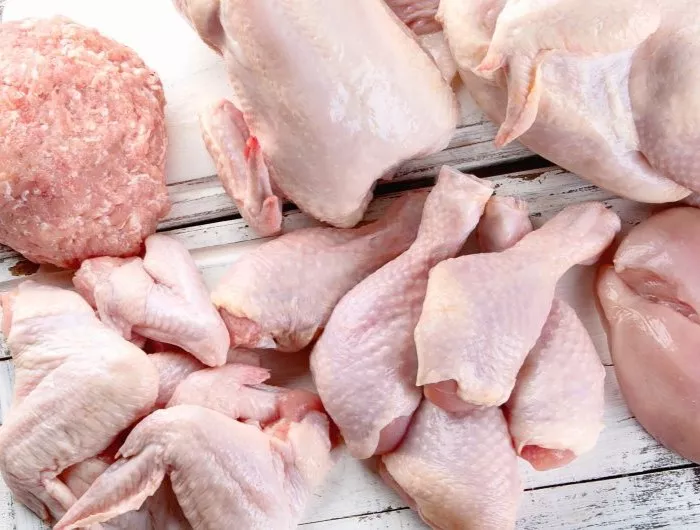WASHINGTON—The U.S. Department of Agriculture is proposing to ban raw poultry products contaminated by high levels of dangerous types of Salmonella. Under the proposed rule released today, raw poultry products contaminated at levels higher than 10 colony forming units (CFU) per gram with a type of Salmonella that is likely to cause illness cannot be sold directly to consumers without further cooking to eliminate the risk.
“The proposal is one of the greatest advances in food safety in a generation,” said CSPI Director of Regulatory Affairs Sarah Sorscher. “USDA and industry have been testing for Salmonella for years, but when a product tests positive, it still gets stamped ‘USDA inspected’ and shipped out to consumers. It’s time for USDA to stop putting its seal of approval on food contaminated with high amounts of disease-causing Salmonella.”
The rule is modeled on USDA’s standard for pathogenic E. coli, which bans the most dangerous types of E. coli in ground beef. In the decade following the 1994 E. coli ban, the incidence of foodborne illness from E. coli dropped by more than 40 percent. Building on experiences with beef, the Center for Science in the Public Interest and other consumer groups petitioned the USDA in 2021 for enforceable, risk-based Salmonella standards in poultry.
USDA recently finalized a similar Salmonella ban that applied much more narrowly to raw, stuffed, breaded products, like Chicken Kyiv. The new proposal is much broader, applying to all raw chicken products, including whole chickens, parts, and ground chicken.
The proposed rule covers three types of Salmonella in chicken most likely to lead to illness: Salmonella Enteritidis, Typhimurium, and a strain known as “1,4,[5],12:i:.” Together, these strains account for 68 percent of outbreak-associated illness in the past five years, according to USDA.
Unfortunately, the proposal does not cover Salmonella Infantis, which emerged as a leading human health threat in 2018, causing a large multistate outbreak. Adding this strain would ensure the rule covers 79 percent of outbreak-associated illnesses, according to USDA’s estimates, and is particularly important because the strain often resistant to antibiotics used to treat Salmonella illnesses.
“Salmonella Infantis is an important emerging threat to human health, and excluding this strain risks having a new standard that is outdated before the ink is even dry,” Sorscher said. “In addition to including Infantis in its final proposal, USDA should also be sure to fulfill its commitment to revisit the standards regularly, swiftly incorporating new emerging threats in the future.”
USDA is also proposing a 10 CFU standard for ground turkey, covering serotypes common in turkey that are likely to cause illness. The agency is also proposing new approaches to applying statistics to control food safety risks in poultry processing and managing risks that arise on farms.





